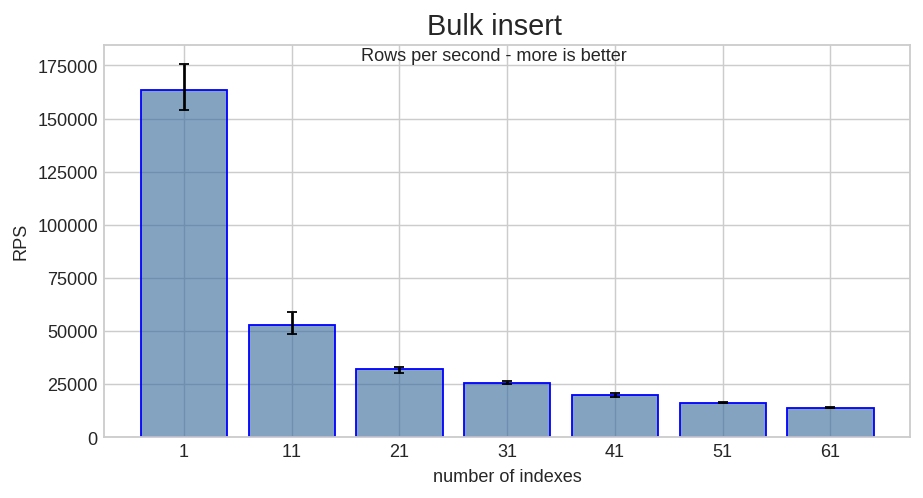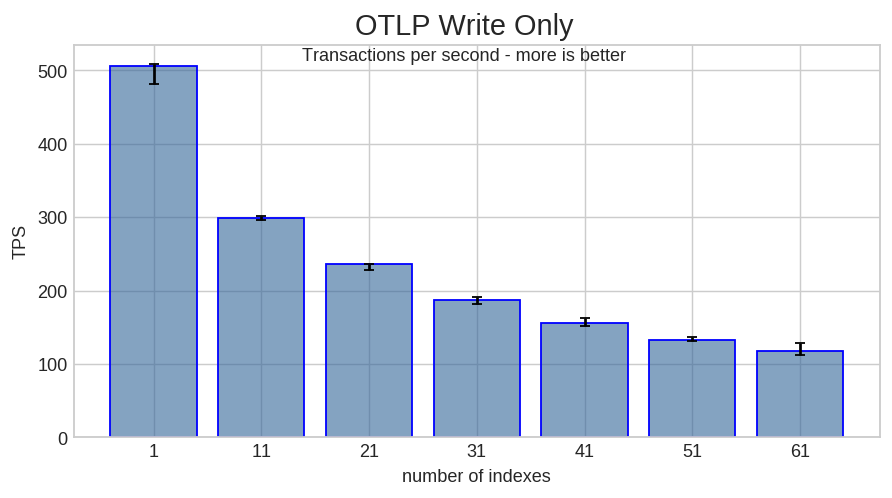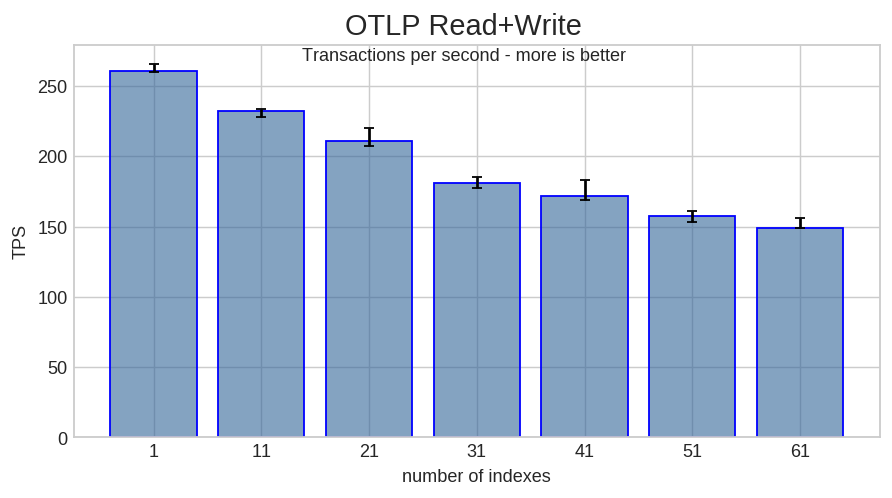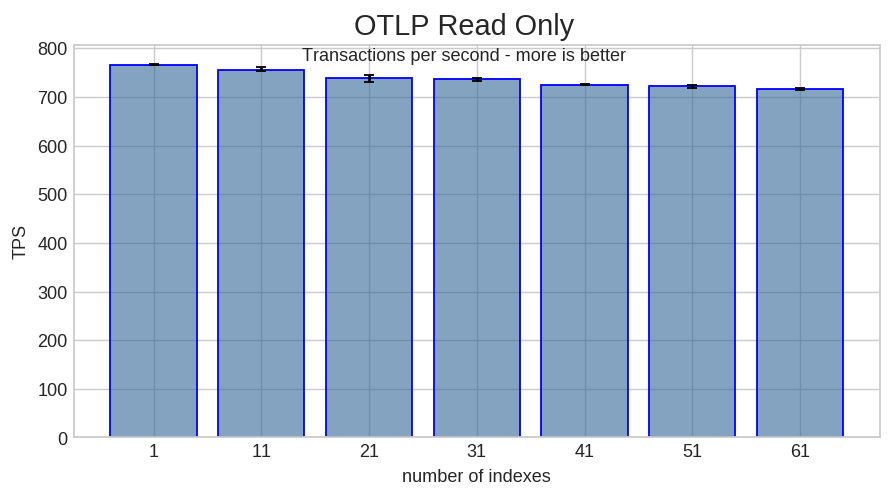The Cost of Idle Indexes

The last few days I’ve been cleaning up indexes. This entails removing duplicate, unused or redundant indexes.
There were quite a lot of indexes, so it was hard work. I knew why this was important to do: as the table changes, indexes need to be kept updated, less indexes means less updates and less wasted resources.
But I wanted to have a real number to attach to the theory. How much benefit is there really? So I decided to run some simple benchmarks with sysbench.
The Test
The test procedure is really simple:
- create a test table
- run the desired benchmark
- add an index
- repeat benchmark
I started with 1 index (the primary key) and went up in 10 index increments. InnoDB supports up to 64 indexes per table.
Each particular combination of test + number of indexes was run 3 times. On the plots we’ll see the median, maximum and minimum values.
Testing was done on MariaDB 10.3.12 running in a docker container.
Bulk Insert
Let’s start with multi-row inserts. This test is entirely focused on writes, so the number of indexes should have a high impact.

RPS with 11 indexes is about 3 times slower. That’s a lot. 61 indexes perform the worst, almost 13 times worse.
OLTP Write Only
This being a write only test, the number of indexes should still matter a lot.

11 indexes make transactions 40% slower. A considerable fall in performance. Worse case is a little bit less than 5 times slower.
OLTP Read+Write
A mix of reads and writes.

With 11 indexes there is only about a 10% reduction in TPS. This should be due the fact that read speed is less affected by extra indexes.
OLTP Read Only
Why does the number of indexes affect read speed? Well, for one thing the query optimizer needs to check all the indexes on a table (even if they are duplicate), also there’s some additional I/O required. So there is a cost, but it should be minimal.
Let’s see if it shows in the test.

As expected, TPS does depend on the number of indexes. Compared with previous tests, however, the impact is low: the worst case, having 61 indexes means a 7% reduction in transaction speed.
Related Links
Conclusion
No major discoveries here. Everything lines up with what we could have expected. It would be interesting to repeat the tests with higher a resolution between the first 15 or so indexes. Which, frankly, is much more common than having 60+.
Bye.
Tomas